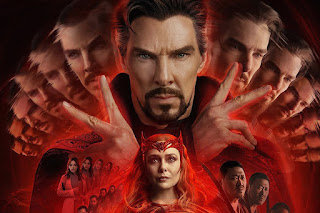When we were less than a year into COVID, I preached a sermon about hope.
It wasn't at a particularly hopeful time. Every sane soul was locked down, isolating and masking and praying for the day we'd finally have a viable vaccine. The economy was collapsing. Morgues were full, and hospitals in crisis. I was hearing, over and over again, of friends who were dying or desperately ill. I hadn't had a haircut in months. I masked everywhere. I saw no-one outside of my bubble.
Church was hard. We were all online, all the time, and the worship life of my little Jesus tribe was basically just me stealing music and videos and folding them into a sporadically functional livestream. Copyright, schmopyright, because who the hell cares about the demands of mammon when thousands are dying every day from a rampant disease with no treatment and no cure? I'm a little bit of an anarchist when it comes to Jesus. If your power gets in the way of my Jesus, I'm going to go with Jesus every time.
As the framing image for the sermon that day, I showed my little flock a video I'd "borrowed" from YouTube. Credited, of course, with an encouragement to view it again. It was a digitally colorized, audio enhanced, AI frame-rate-adjusted video of life in Amsterdam a century ago. It had none of the black and white, Keystone Kops hyperpacing of "old movies." It had been upscaled to sixty frames per second, and given simulated background audio. It felt real. Present. Like these are real human beings, and we are peering across time.
Those long dead souls danced, and laughed, and mugged for the camera. They were as human as we are.
In another vital way, their era wasn't different. The human beings in that video were only four years out from the most lethal pandemic in human history, the great Influenza pandemic of 1918. Every single person laughing and dancing and playing on those streets would have seen death. Those laughing souls had experienced 40,000 dead in the city of Amsterdam alone in a single year, as a disease for which there was no treatment and no vaccine killed more than the butchery of the War to End All Wars.
Their pandemic was over, and at the height of the fear and anxiety of our COVID trauma, I needed the good souls of my sweet little church to see what it looked like when that release finally came. It wasn't a total release, of course. Influenza remained among them, and still took lives. But the 1918 pandemic ended, and life and laughter returned.
Speaking hope in times that seem hopeless is fundamentally biblical. It's Jeremiah, buying a field even though war raged. It's Ezekiel, shouting down those who claimed all were doomed to suffer for their ancestor's sins. It's Isaiah, proclaiming comfort to the Jewish people as they wept in Babylon, and suggesting that they would one day return to where they'd been before.
Or Jesus quoting Isaiah, declaring God's plan of liberation for the oppressed, and having the boldness to say to those gathered that the day of jubilee had arrived.
There comes a time when the thing we hope for arrives.
As it has now. The pandemic is over.
For some, particularly those on the progressive side of things, making that statement now is met with derision. For so long, acknowledging the pandemic was a marker of sorts, something that established that you got it. You weren't like the delusional throngs of Trump-addled COVID deniers. You didn't prioritize the economy over the lives of the vulnerable. You were diligent. You were righteous. You held to your diligence as a defining truth.
That, and we were all afraid for so long, anxious that every cough and sniffle could mean death or hospitalization for ourselves or family members. That fear was a real thing, and it was warranted.
In the terrible branding heat of our long COVID years, that contingent truth became the Truth Unchanging. Trauma does that, searing its pain and fear into our souls. When traumatized, we start seeing all things through the lenses of that trauma. The Trauma is everything, and everything is The Trauma. The Pandemic is forever, our Trauma cries. It will never end.
This isn't real. It's a "subjective reality," sure. But it's not real. It's a phantasm cast by past pain, no more valid than Trump's Big Lie, or the fascist fever dreams of QAnon's "subjective reality." Where we are, now, is in that place where COVID is with us forever, as the common cold and influenza are with us forever. It's become endemic, a virulent new addition to the grim ecosystem of human disease.
That means we're going to be dealing with it forever. I'll be getting my annual COVID shot along with my flu shot. Every once in a while, it'll mutate in an unanticipated way, and we'll have a bad year. I am likely to get COVID again, as I did during Omicron. I don't relish the prospect, particularly if it again involves losing most of my hearing for nearly two months after the infection. Yay idiopathic inner ear inflammatory response.
If there's a lethal new variant, we may need to mask and isolate again. So be it. I'll do my part to prevent the recurrence of the megadeaths we had with Alpha and Delta.
Recognizing this, my little church has committed to permanently livestreaming our worship. It includes and protects folks who are vulnerable, like wearing masks or testing before seeing an immunocompromised family member. It means we're prepared if pandemic returns.
But right now, the pandemic is over. That is what is real. What we hoped for has arrived. The faithful thing to do, now, is to go back to living.













